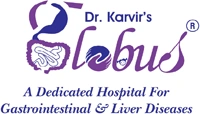Gerd
Gastroesophageal reflux disease or gerd as it is commonly called occurs when the acid present in the stomach flows back into the esophagus which is the tube connecting the mouth and the stomach. This acid reflux or backwash causes irritation in the inner lining of the esophagus. Acid reflux is quite common and most people experience mild symptoms from time to time. The symptoms may be severe in some people but they can generally be managed by making lifestyle changes. Antacids are easily available over the counter and can be used if the symptoms are mild.
Are acid reflux and gerd the same?
Acid reflux is the backflow of stomach acid, irritating the lining of the esophagus. Occasional acid reflux can be easily managed and does not pose any problem.
Chronic acid reflux is called gerd. It is a condition in which the sphincter muscle or the valve between the stomach and the esophagus becomes weak. This allows stomach acid to backflow regularly causing permanent damage to the lining of the esophagus.
Common symptoms of gerd
- The sensation of a lump in the throat.
- Difficulty in swallowing
- Heartburn (burning sensation in your chest).
- Chest pain.
- Regurgitation of sour liquid
Sometimes the symptoms of gerd get worse at night and are accompanied by chronic cough, asthma, laryngitis, and disrupted sleep.
Risk factors:
Some conditions increase the risk of gerd. These are
- Obesity
- Pregnancy
- Delayed stomach emptying
- Scleroderma
Factors that can aggravate acid reflux:
- Eating fried and fatty food
- Eating large meals late at night
- Drinking alcohol or coffee
- Intake of certain medicines such as aspirin
- Smoking.
Complications:
Acid reflux is not a very serious problem but if ignored, it may result in certain complications. Chronic inflammation in the esophagus can cause:
- Barrett’s esophagus or precancerous changes in the esophagus.
- Esophageal stricture or narrowing of the esophagus.
- Esophageal ulcer or an open sore in the esophagus.
Treatment of gerd
Your doctor may suggest certain lifestyle changes to relieve the symptoms of gerd. These are:
- Avoid late-night dinners.
- Quitting smoking if you do so.
- Not to lie down immediately after eating.
- Maintaining optimum weight.
- Elevating your head while sleeping.
In more severe cases, doctors may prescribe antacids or other medicines like h2 receptor blockers or proton pump inhibitors to contain the symptoms.
Others Condition:
Bloating | Cancers of Stomach, Intestine & Liver | Constipation | Hirshsprung’s Disease | Gallstone | Dysphagia | Inflammatory Bowel Disease | Pancreatitis | SIBO | Barrett’s Esophagus | Blood in Stools / Vomitus | Celiac Disease | Diarrhea | Fatty Liver | Gerd | Irritable Bowel Syndrome | Piles


